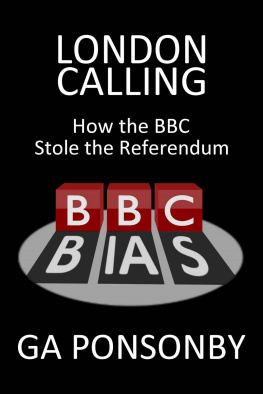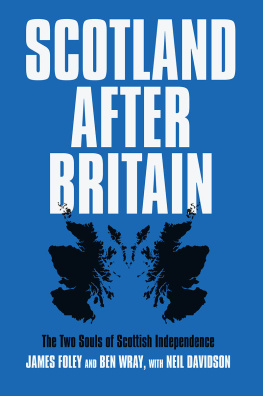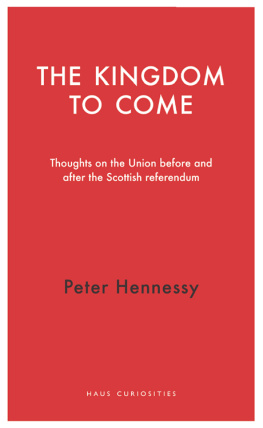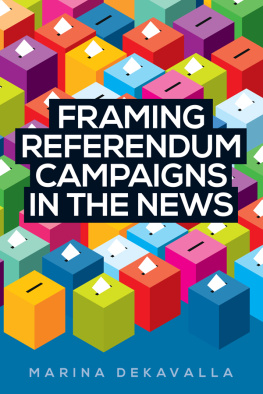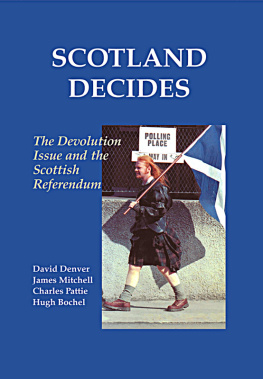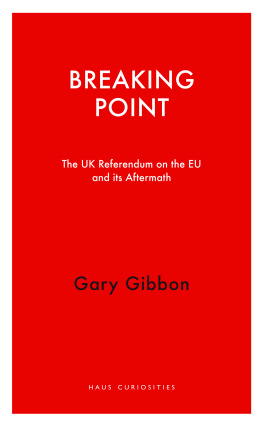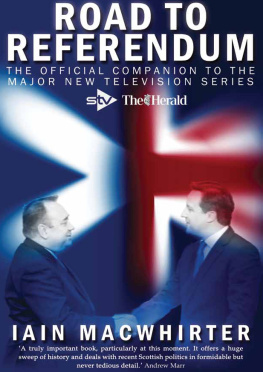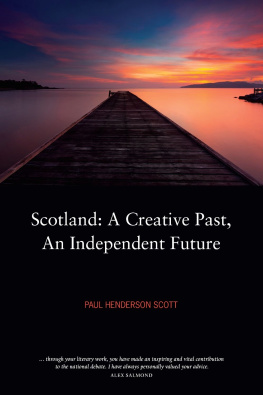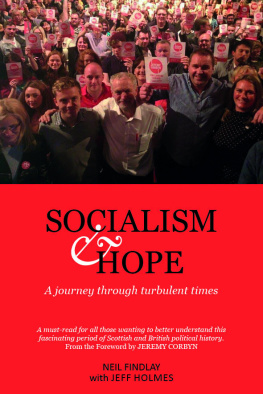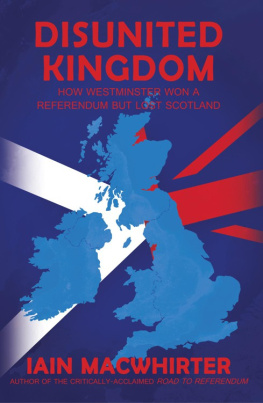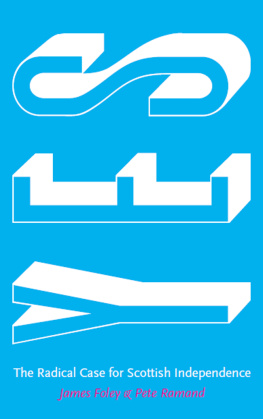London Calling
How The BBC Stole The Referendum
By G.A.Ponsonby
This book has been published by NNS Media Ltd. It is an independently owned company with no links to any political party.
The book is dedicated to my wife who has had to put up with six years of my near obsession with politics.
Acknowledgements:
Much of the material for this book has come from research carried out from my time with Newsnet Scotland. However other sources and people were vital in helping fill in gaps and ensuring the absolute accuracy of the book contents. They are too numerous to mention.
Chapter 1 - Turning Yes into No
The 2014 independence referendum was an historic event. The SNP landslide victory in May 2011 meant that for almost three years it captivated a nation, dominated the news agenda and influenced almost every aspect of Scottish and UK politics. Ordinary people who had never before engaged in the democratic process discovered an unknown thirst for information. The referendum seeped into the Scottish psyche and gave rebirth to real democracy. A nation went through a political re-awakening.
Our media should have reflected this inspirational period. Newspapers should have thrived, broadcasters should have excelled and journalists should have become heroes. But that didnt happen. Instead agendas were pursued, news was manipulated and old allegiances maintained. At the helm of what I consider to be the media corruption that poisoned the independence debate was the BBC. At the eleventh hour, when Yes appeared to be on course for victory, the broadcaster pulled out all the stops to prevent a Yes triumph.
The BBC is a global institution which has its headquarters in London. All major decisions are taken there. It is officially free from interference from the Westminster government of the day and by extension is apolitical or is supposed to be. At the time of writing, it is policed by an organisation called the BBC Trust.
The BBC is renowned the world over, it was the first public service broadcaster. For decades the BBC was unrivalled as its global reputation grew. The arrival of other broadcasters such as the US based CNN and the Middle East broadcaster Al-Jazeera has witnessed a gradual decline in the status of the BBC. Nevertheless, for most people across the world it remains a trusted and respected source of news and information.
This image of the BBC is one that endures in the minds of the UK public who, by and large, trust the corporation to report matters honestly and without fear or favour. For many the BBC doesnt just report, it validates. The broadcasters reputation has survived several scandals. Andrew Gilligans infamous sexed up dossier report relating to the role of the Blair government in the lead up to the Iraq war ended with the resignation of BBC Director General Greg Dyke. More recently the BBC has had to endure the fallout over its role in harbouring sex offenders such as Jimmy Savile and Stuart Hall.
Its a testimony to the power and influence of the BBC that it has managed to emerge virtually unscathed from each and every scandal. People across the UK seem content to pay an annual licence fee, essentially a tax, of 145.50 in order to ensure the BBC continues in its role as the main provider of news and entertainment. In Scotland however, that contentment is showing signs of cracking.
The broadcasters Scottish branch is called, not surprisingly, BBC Scotland. It has its own headquarters at Pacific Quay in Glasgow. Its presenters are part of everyday life north of the border with familiar faces and voices presenting a daily snapshot of the country.
The main evening news programme is called Reporting Scotland. Broadcast at 6:30 pm each weekday evening with shorter bulletins at the weekend, it rarely ventures beyond Scotlands border for the days news, which means it has limited scope in terms of content. An over reliance on central-belt violence and football has earned it the nickname the murder and fitba show. [The murder and football show]
In 2004 a bid to replace Reporting Scotland with a Scottish Six news pro-gramme, produced and edited in Scotland, led to a pilot being commissioned. The plan was to provide Scottish viewers with a news programme that presented national and international events through a Scottish lens. It would re-place both the UK national news programme and the out-dated Reporting Scotland.
Scotland had voted in favour of devolution seven years earlier and now had its own parliament. However despite this political evolution, broadcasting had remained firmly stuck in the pre-devolution age. A Scottish Six news pro-gramme would partially address this devolution deficit. According to those who saw the initial pilot, it was a success. However the plan was shelved after bosses in London refused to give it the green light. Writing in 2007 respected journalist and broadcaster Iain MacWhirter said:
Im one of the few people in this debate who has actually seen a Scottish Six. In 2004, BBC Scotland produced pilot programmes, for internal consumption only, to show what a Scottish-generated national news bulletin might look like. Surprise, surprise, it worked extremely well. The programmes were well presented and gave excellent UK and foreign coverage while treating devolved Scottish issues with the respect and authority they deserved.
I can well understand why the BBC didnt show them to the public. As soon as you actually see a Scottish Six, you wonder how we could have tolerated the present arrangement for so long.
MacWhirter went on to lament the lack of funding for the corporation in Scotland, which he said led to inferior quality productions.
There is an assumption that if it is Scottish it must necessarily be inferior, local, trivial. This is understandable given the poor quality of much existing Scottish output, which is systematically under-resourced. But that hasnt happened by accident.
BBC budgets are structured in a way that ensures Scottish pro-grammes are technically inferior, and have lower production values. Funding, like the Scottish Six, is a political issue.
I know this only too well. Back in the 1990s I presented the BBC 2 net-work programme, Westminster Live, from the BBCs parliamentary complex at Millbank in London. This had an entire department devoted to it, with dedicated film crews and editing suites, graphics, transport, countless producers, researchers.
The comparable Scottish programme, Holyrood Live, which I returned to present in Scotland in 1999, had a man and a dog. A brilliant man and a brilliant dog, as it happened - highly professional and incredibly hard working producers, but people who were ground down by lack of resources and constant cuts.
When I complained about underfunding, as I frequently did, the response was always the same from BBC executives: Well, this is Scot-land. We have a tenth of the population so we only get a tenth of the budget for programmes. I could never accept this kind of regionalist defeatism, which seemed to me an insult to the Scottish people. Why should political programmes be of inferior quality just because they happen to be made in Scotland?
It later emerged that senior Scottish figures in the Labour party had fought against the plan. One of those was Blair McDougall, a Labour party special adviser who would later go on to become campaign director of the anti-independence group Better Together. In November 2007 McDougall sent an internal memo to the then Secretary of State for Scotland Des Browne. In the communication McDougall warned against allowing BBC Scotland to create an evening news programme that would have presented events home and abroad from a Scottish perspective. Six months earlier Alex Salmond had led the SNP to a narrow one seat victory over Jack McConnells Labour party. The new First Minister was keen to address what many felt were shortcomings in the BBCs output in Scotland. This worried the UK Labour Government.

